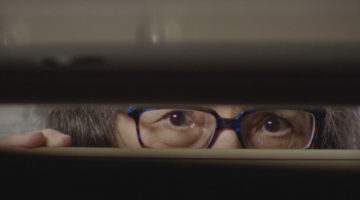Review: Gravity
Synopsis:
In this sci-fi thriller, Astronauts Ryan Stone and Matt Kowalski are led into a terrifying maelstrom of space debris that threatens their mission and, more importantly, their lives. Caught, and defenseless, in space there’s truly no place like home.
Cast:
Sandra Bullock and George Clooney are a duo, unless you count Ed Harris’s Mission Control as tertiary.
Review:
Why be clever and call Gravity “weightless” or “lacks gravitas” when one can simply deem it bad? Puns can only make humour – not criticism – out of the basic banality of Alfonso Cuarón’s CGI stunt, which devises and then abuses 3D technology. The film is, while efficient, an extended sequence of astronaut Ryan Stone (Sandra Bullock) floating and flailing in repetitive thrusts as a storm of debris makes hash of her Mission Control ship, run of course by Houston (voiced by Ed Harris).
Cuarón, who directed 2006’s Children of Men, traffics in unbroken sequences that dramatize a character’s persistence against a relentlessly chaotic environment. Same in Gravity, only Cuarón’s steadicam endures for a facile purpose. With the intention of conveying the levitating feeling of being in space, Cuarón’s technique turns into exhibitionism as the film’s notions of awe and life/death contemplation float by with zero ease and profundity.
The first shot, a 20-minute one, practically announces AWE. Gravity dawns on an iridescent Planet Earth – awesome and beatific – and slowly gravitates to the wing of Mission Control where Ryan and veteran astronaut Matt Kowalski (George Clooney) try to capture a space module, and also share wisecracks and their amazement with Earth from space. Then Kowalski utters “I have a bad feeling about this mission”, a line that foreshadows Cuarón’s cliché, false sense of dread.
Cuarón wants to conjure up many feelings in Gravity: awe, terror, anticipation, and dread. But these elements are integrated so inelegantly from the clunky, ludicrous dialogue (recall near the end when Ryan whispers at the end of a monologue, “Roger that”, in such contrived, risible fashion?) to the affectless, in-your-face juvenile use of debris, water, and even teardrops that hit the frame with shallow impact (an approach that has been confused as “visceral”).
Cuarón assumes his tracking shots to be inherently mind-blowing, and does not realize that this technique can often be misused by overlooking dramatic impact. The unbroken shots hinder the organized build of emotion and drama that often stem from montage. Some declare Gravity an emotional experience, but where is it? The opening titles stress that sound cannot travel in space, and apparently neither can emotion. It is lost in a film that is essentially one fluid sequence of CGI trickery and excessive technique (all the bombastic music quells a believable sense of isolation and cold silence in space).
With these issues, can Gravity still resonate as a minimalistic blockbuster (the ultimate oxymoron)? Absolutely not. It’s still as intrusive and dumb as this summer’s Star Trek Into Darkness and Pacific Rim. Cuarón’s difference is his art-house pretense – his unsuccessful attempt at being contemplative and visually concise. But there’s still, as usual with most Hollywood blockbusters, no commanding rhythm or consistent visual awe. Just clutter – literally clutter – as a storm of debris sends Ryan into a whirlwind, and that gets old fast.
Bullock is fine as Ryan, but Cuarón never fleshes her out. The director’s first shot is essentially the exposition, but from there Ryan acts in a confused pattern of hesitance and resilience. Her heroism is oblique. She’s no Ripley. As a result, we do not respond to Ryan and thus the film is only immersive in the most superficial way: the CGI funhouse.
There’s just nothing subtle or graceful about Gravity. The film’s two extremes of fatalism and hope feel phony, since all of Cuarón’s dramaturgical elements are driven by artifice with the glib sentimentality and meaning. If Gravity really is a masterpiece, then the standard of cinema is now for banality – false technique and grandeur. Russian director Andrei Tarkovsky (Solaris, Stalker) would, hopefully, cringe at this sci-fi jape. Alas, I’ve beaten him to it.
Should You See It?
The hype is that you NEED a big screen to see it, preferably IMAX. If you choose to watch Gravity, I’d follow suit. The best part about the film are the visual effects, gargantuan that they are, so you may as well Super Size this sci-fi happy meal.
[star v=2]






